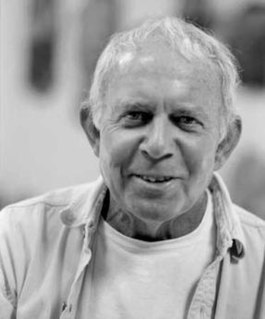A Quote by Elizabeth Barrett Browning
How many desolate creatures on the earth have learnt the simple dues of fellowship and social comfort, in a hospital.
Related Quotes
How many people on Earth serve people? And how many people on Earth serve the Earth? The difference in the numbers must be enormous. It would reveal that the Earth is definitely not the primary concern of the human species. This might be fatal both to the Earth and to humanity. Please, leaders of the Earth and the nations, wake up to this potentially fatal disparity.
So how can we test the idea that the transition from nonlife to life is simple enough to happen repeatedly? The most obvious and straightforward way is to search for a second form of life on Earth. No planet is more Earth-like than Earth itself, so if the path to life is easy, then life should have started up many times over right here.
In the matter of fellowship God looks not at how much we apprehend of His will but rather at what our attitude towards His will is. If we honestly seek and wholeheartedly obey His desires, our fellowship remains unbroken, even though there should be many unknown sins in us. Should fellowship be determined by the holiness of God, who among all the most holy saints in the past and the present would be qualified to hold a moment's perfect communion with Him?
Jesus went without comfort so that you might have it. He postponed joy so that you might share in it. He willingly chose isolation so that you might never be alone in your hurt and sorrow. He had no real fellowship so that fellowship might be yours, this moment. This alone is enough cause for great gratitude!
Clay can be a metaphor for many things. I made it a metaphor for flesh and earth, and these are two kinds of generic givens of life, if you look at it poetically, biblically, the idea of the life of beings, of man, being transitory, the earth abides-ashes to ashes, dust to dust-man returns to earth, grows out of earth like a flower, wilts, goes back to the earth... We are frail, transitory creatures with aspirations of immortality, conscious of our inevitable death, and we have to deal with it somehow.
Regarding the passage on p. 163 of the 'Gleanings': The creatures which Bahá'u'lláh states to be found on every planet cannot be considered to be necessarily similar or different from human beings on this earth. Bahá'u'lláh does not specifically state whether such creatures are like or unlike us. He simply refers to the fact that there are creatures on every planet. It remains for science to discover one day the exact nature of these creatures.







































